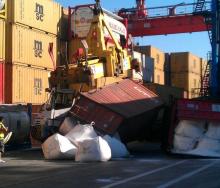Customs duties are imposed by the Customs and Excise Act 91 of 1964. They are levied on imported goods with the aim of raising revenue and protecting the local market. They are usually calculated as a percentage of the value of the goods (set in the schedules to the Customs and Excise Act).
However meat, fish, tea, certain textile products and certain firearms attract rates of duty calculated either as a percentage of the value or as cents per unit (for example, per kilogram or metre).
Additional ad valorem excise duties – which is the levying of tax or customs duties in proportion to the estimated value of the goods or transaction concerned, for example: "ad valorem stamp duty at the rate of 1 per cent is payable" – are levied on a wide range of luxury or non-essential items such as perfumes, firearms and arcade games. <HYPERLINK> See the External Standard - Ad Valorem Excise Duty.
What duties are levied on imported goods?
Three kinds of duties are levied on imported goods:
- Customs duties (including additional ad valorem duties on certain luxury or non-essential items)
- Anti-dumping and countervailing duties
- VAT (which is also collected on goods imported and cleared for home consumption).
Source: South African Revenue Service (Sars)











